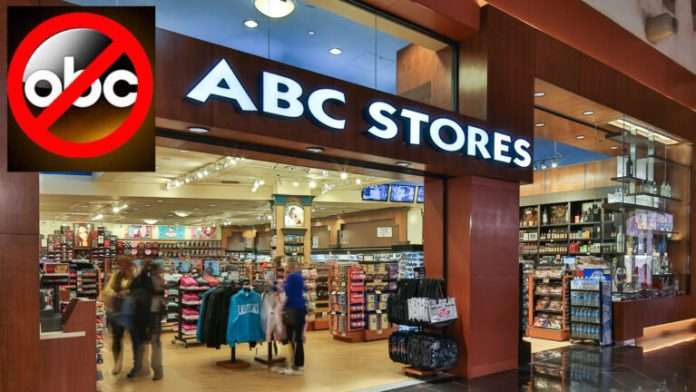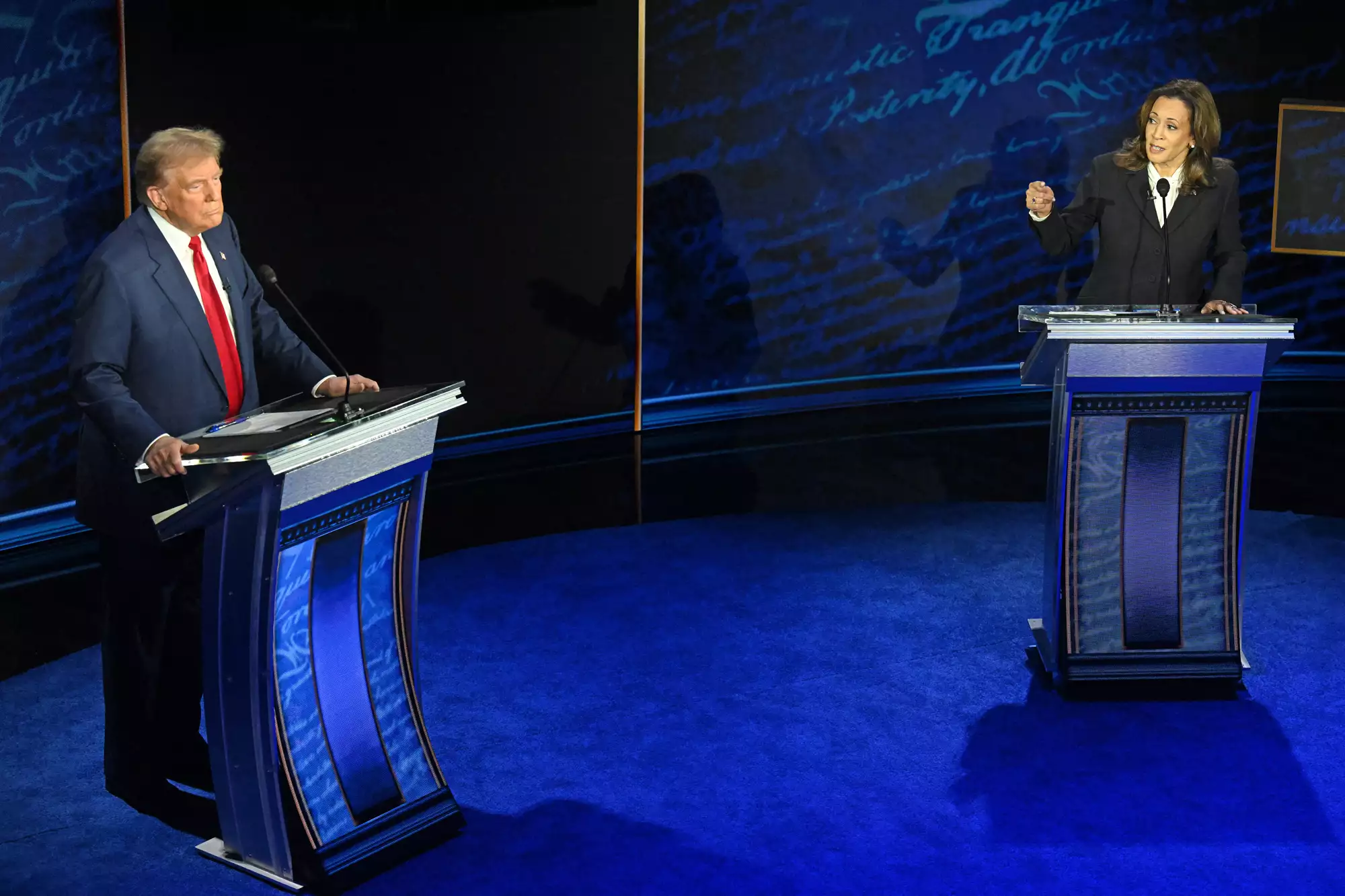In the aftermath of the heated 2024 presidential debate, ABC stores across the United States have begun displaying bold signage to make one thing crystal clear: they have absolutely no connection to the television network responsible for airing the contentious event. From “ABC Fine Wine & Spirits” to “ABC Warehouse,” locations are posting disclaimers on their front doors, billboards, and websites, all emphasizing that their only concern is selling alcohol, electronics, or whatever else their particular ABC stands for—and nothing political.
The move comes after the network, ABC News, was caught in a media firestorm over their moderation of the presidential debate between Donald Trump and Kamala Harris. With accusations of bias, real-time fact-checking scandals, and both candidates’ supporters crying foul, the debate quickly spiraled into one of the most polarizing media events of the year. And, as is typical of today’s social media-driven world, the backlash didn’t just stop at ABC News. Soon, people all over the country began directing their anger at any business with “ABC” in its name.
It didn’t take long for the phone lines at ABC Fine Wine & Spirits, a chain of liquor stores based in Florida, to start ringing off the hook—though not with customers asking about the latest whiskey deals. Instead, the callers were furious debate-watchers, demanding to know why the store had chosen to “get political” and “ruin a perfectly good debate.”
“After the 12th phone call accusing us of bias, we knew we had a problem,” said Greg Nelson, a manager at ABC Fine Wine & Spirits in Tampa. “Look, I love a good debate as much as the next guy, but we sell tequila. That’s it. We have no say in who the moderators are, let alone fact-checking candidates.”
The confusion between ABC stores and the network became so widespread that it prompted a company-wide initiative: every single ABC Fine Wine & Spirits location would put up large, unmistakable signs declaring, “We Are Not Affiliated With ABC News—We Just Sell Liquor.”
“Our business took a hit for something we didn’t even do,” Nelson continued. “People were calling, asking if we were pushing a political agenda. I had to tell them, ‘Sir, we’re only pushing vodka.’”
The ABC branding debacle wasn’t limited to the liquor world. ABC Warehouse, an appliance and electronics retailer based in the Midwest, also found itself in the crosshairs of political outrage.
“Right after the debate, we started seeing Yelp reviews saying things like, ‘I’ll never buy a refrigerator from a biased company like ABC,’” said Cynthia Harper, a regional manager for ABC Warehouse. “I mean, how do you even respond to that? We sell dishwashers and TVs. The closest we get to politics is deciding which cable package has the most sports channels.”
The company quickly moved to address the confusion. Signs reading, “ABC Warehouse: Selling Appliances, Not Political Opinions Since 1963,” were plastered across storefronts, and their social media channels began running a full-scale campaign to clarify that they had absolutely no connection to the network.
“We don’t even watch the debates,” Harper admitted. “We’re too busy trying to figure out how to sell more washing machines. But now we’re stuck dealing with people who think we moderated the thing. It’s exhausting.”
Much of the confusion can be attributed to the fast-moving, misinformation-heavy world of social media, where nuance goes to die. Following the debate, a tweet comparing ABC Fine Wine & Spirits to ABC News went viral, prompting thousands of comments and retweets from users who believed the two were linked.
“They’re all in it together!” tweeted one user, before launching into a diatribe about how “corporate media” and “big liquor” were conspiring to fact-check Trump.
Another user posted, “Boycott ABC! No more cheap appliances or biased news!” alongside a photo of an ABC Warehouse store, which was quickly misinterpreted as the network’s headquarters.
The internet being what it is, these posts gained traction, and soon enough, people were launching boycotts against stores that had nothing to do with the debate. Memes, false claims, and rage-filled comment sections only added fuel to the fire, leaving ABC-branded businesses scrambling to protect their reputations.
It wasn’t long before other ABC-branded businesses across the country started following suit. ABC Supply Co., a wholesale distributor of roofing materials, put out a statement reminding the public that their expertise lies in shingles, not political debates. “We provide durable roofing solutions, not debate moderation,” their website now reads, in a clearly exasperated tone.
Even small, independent businesses with “ABC” in their name felt the need to jump in. A family-owned ABC Pet Store in New Jersey posted a sign reading, “We don’t do politics, just pet food.”
“I had to explain to at least five people yesterday that I have no idea who fact-checked Trump,” said Gloria Ramirez, owner of the store. “All I know is where to find the best dog kibble.”
As ABC stores across the country scrambled to distance themselves from the network, ABC News found itself in the midst of its own damage control. The moderators of the debate, David Muir and Linsey Davis, came under fire from both sides, with each camp accusing them of bias in favor of the other. Trump supporters decried the fact-checking as unfair interference, while Harris supporters criticized the moderators for not pushing back hard enough on certain topics.
In response, ABC News released a statement clarifying their position: “We are not responsible for the opinions or actions of any business with ‘ABC’ in its name. We are also not affiliated with any liquor stores, appliance retailers, or pet supply chains. Please direct all non-political inquiries to those respective companies.”
Despite their efforts, the fallout from the debate continued to spread, with both political sides using the incident as yet another example of the divide between “mainstream media” and everyday Americans.

















